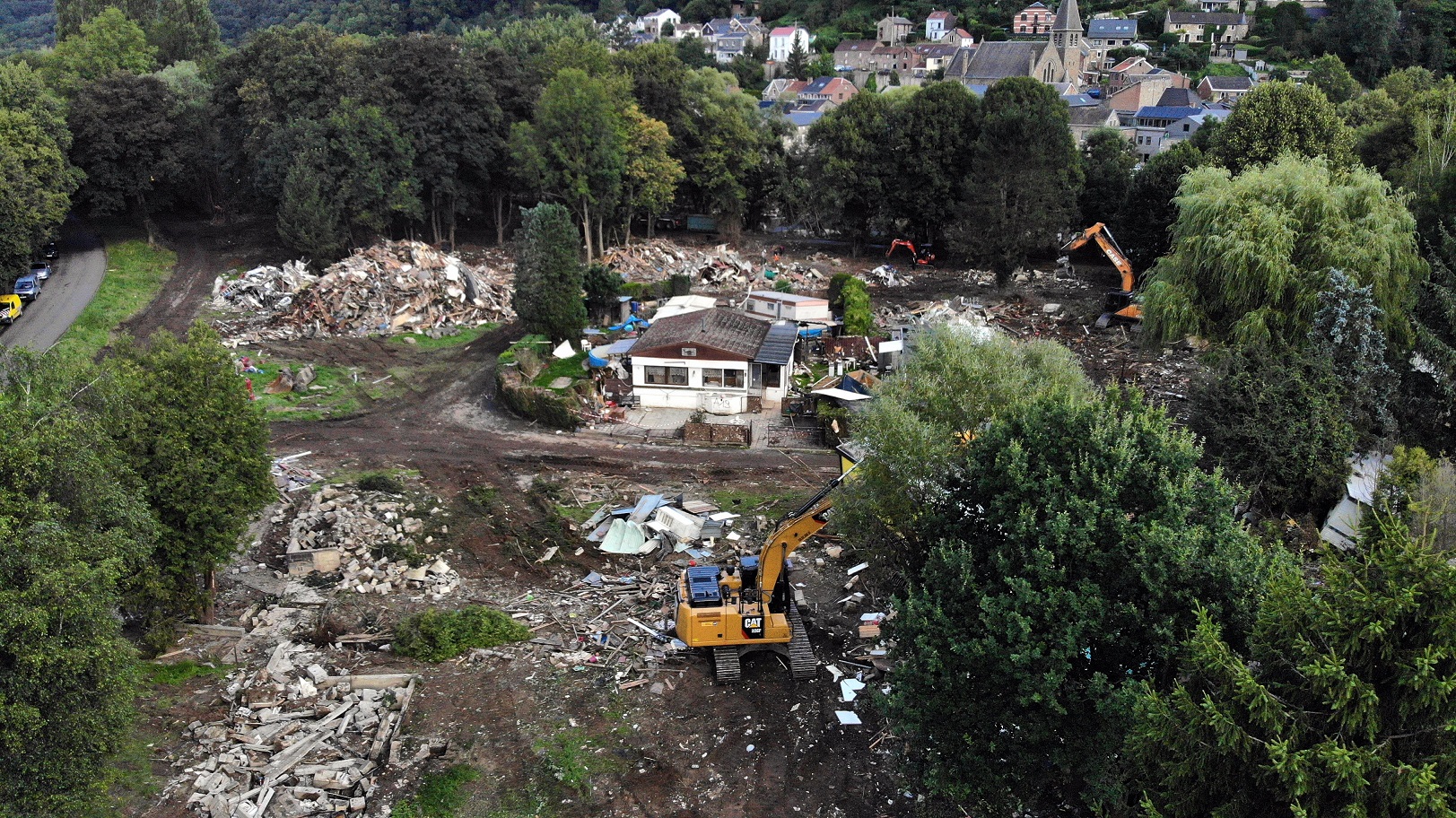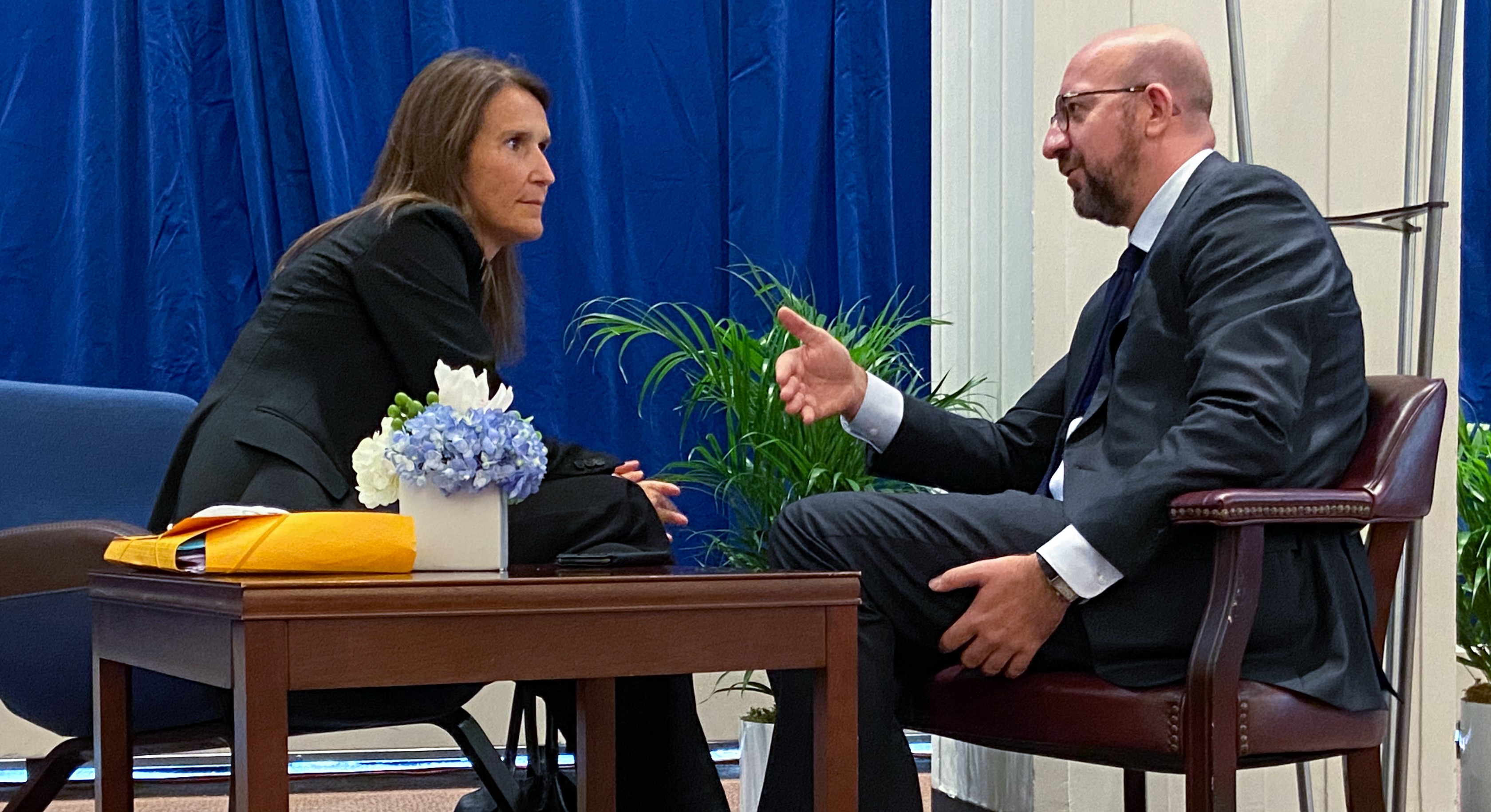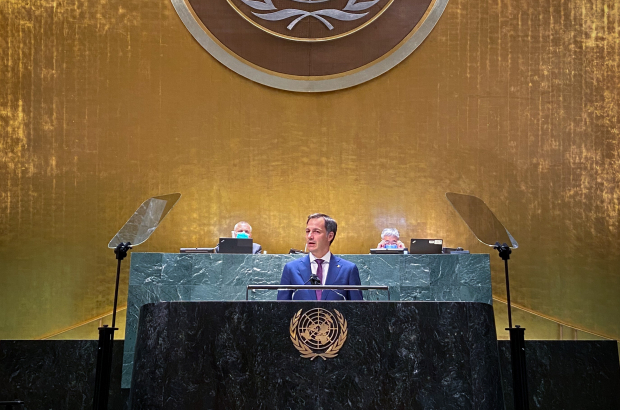- Daily & Weekly newsletters
- Buy & download The Bulletin
- Comment on our articles
‘We must do whatever it takes to limit global warming’: Prime minister addresses UN
Belgian prime minister Alexander De Croo addressed the United Nations General Assembly in New York last Friday in a speech that emphasised multilateralism in solving global problems such as Covid-19 and the climate crisis.
De Croo (pictured) started by quoting Dag Hammarskjöld, the second secretary-general of the UN who died in a plane crash on his way to the Congo in 1961. While the cause of the crash remains unclear to this day, it is largely conjectured that it was shot down due to commercial interests in the country following its independence from Belgium.
“Let me quote secretary-general Dag Hammarskjöld, who was murdered exactly 60 years ago last week,” said De Croo. “The weakness of one is the weakness of all, and the strength of one is the strength of all.”
This is why Belgium is committed to multilateralism, he continued, “to an international order based on the rule of law, the founding principle of our United Nations. Only through multilateralism, will we provide long-term answers to today’s complex crises.”
He went on to identify the three most crucial issues of our times: Covid-19, the climate crisis and terrorism.
‘Vaccine powerhouse’
De Croo thanked health-care workers, emphasised Belgium’s support of Covax – an international initiative to make vaccines available to all countries – and noted that a Belgian firm is working with Senegal on local production of a vaccine.
“Belgium is among the top vaccinated countries in the world,” said the prime minister. “But Belgium is also a leading exporter of vaccines, accounting for two-thirds of all European exports. We are one of the world’s vaccine powerhouses, and we acted like one, by keeping trade open and exporting over 530 million vaccines to the rest of the world, without ever imposing an export ban. If we are to overcome this pandemic, vaccine solidarity is a crucial condition, since no one will be safe until everyone is safe.”
He called for a pandemic treaty so the world would be ready for the next virus and notably said that we need to reform the World Health Organization so that it is “fit for purpose to lead these efforts”.
 Belgium faced the worst floods it has ever known, Alexander De Croo told the UN
Belgium faced the worst floods it has ever known, Alexander De Croo told the UN
©Eric Lalmand/BELGA
The current pandemic has been linked to the exploitation of wildlife and natural resources, and De Croo continued his speech by saying that the world is experiencing the disastrous effects of climate change faster than expected.
He had an excellent example. “This summer, Europe and my country have been hit hard by extreme weather conditions. These are 41 of our compatriots who lost their lives in these floods, the worst in our country. Our nation was in shock. Faced with the brutality of the forces of nature, many of us felt very small.”
Belgium will rebuild, he said, “but we cannot sit back and wait for the next flood, the next heat wave, or the next extreme drought that will kill again. We must act, and we must do it now.”
With a nod to the upcoming COP26 in Glasgow, he said that the world’s nations must “do whatever it takes to limit global warming to the Paris target of one-and-a-half degrees. It is, quite literally, a matter of life and death.”
Climate neutral
De Croo pointed out that the EU’s goal is to be climate neutral by 2050 and hoped other regions would rise to those ambitions as well. He mentioned Belgium’s commitment to double wind energy capacity in the North Sea and to becoming a hub in clean hydrogen supply.
“If we fail to act on the climate crisis, we will not only lose more lives, but global tensions, instability and insecurity will increase,” said De Croo, before taking on terrorism. “Twenty years ago, the attacks of 9/11 not only changed this city. They changed the world. Five years ago, my country was also attacked by terrorists. Like France, we are bringing terrorists to justice. But we have not defeated terrorism yet. Terrorists continue to claim innocent lives, as they did recently at Kabul airport.”
He pointed out that Belgium is one of the founding members of Coalition Against Isis and actively works on stabilisation and reconstruction efforts through the UN’s development programme. He insisted that humanitarian assistance is crucial to such efforts and said that Belgium’s budget for aid in 2020 was €200 million.
He then turned his attention to Afghanistan, saying that “the world cannot turn its back on the Afghan people”. He emphasised that aid would not be enough and that the world’s nations needed to commit to challenging human-rights abuses and poverty in the country “to prevent it from imploding”.
“Turning our back on the Afghan people, would come at a high cost,” he said. “A population plunged into extreme poverty, will fall victim to extreme ideologies or will do anything to leave the country.”
 Federal foreign affairs minister Sophie Wilmès and European Council president Charles Michel at the UN General Assembly ©Benoit Doppagne/BELGA
Federal foreign affairs minister Sophie Wilmès and European Council president Charles Michel at the UN General Assembly ©Benoit Doppagne/BELGA
Belgian journalist Björn Soenens – VRT’s correspondent in New York – said that the speech was well received by the UN specifically because it put multilateralism at the centre of solving the world’s crises. “He plead for multilateralism and more international co-operation in an era where these concepts are under fire,” said Soenens.
Federal foreign affairs minister Sophie Wilmès and former prime minister Charles Michel – now president of the European Council – were also present at the General Assembly in New York. Michel, too, delivered a speech, addressing the climate crisis with much harsher words than De Croo.
“We have tortured our planet, abused our natural resources,” said Michel. “We have committed acts of war against our environment. And now nature is fighting back, bringing us back to our senses. No one can say ‘I didn’t know’. For decades, scientists have sounded the alarm, but their warnings fell on deaf ears.”
He called for an all-out revolution. “It’s time for humans to sign an armistice with nature, a peace treaty with our planet … It’s time for us to transform the world, just as the previous generation did after the last world war.”
Photo top ©Benoit Doppagne/BELGA



















